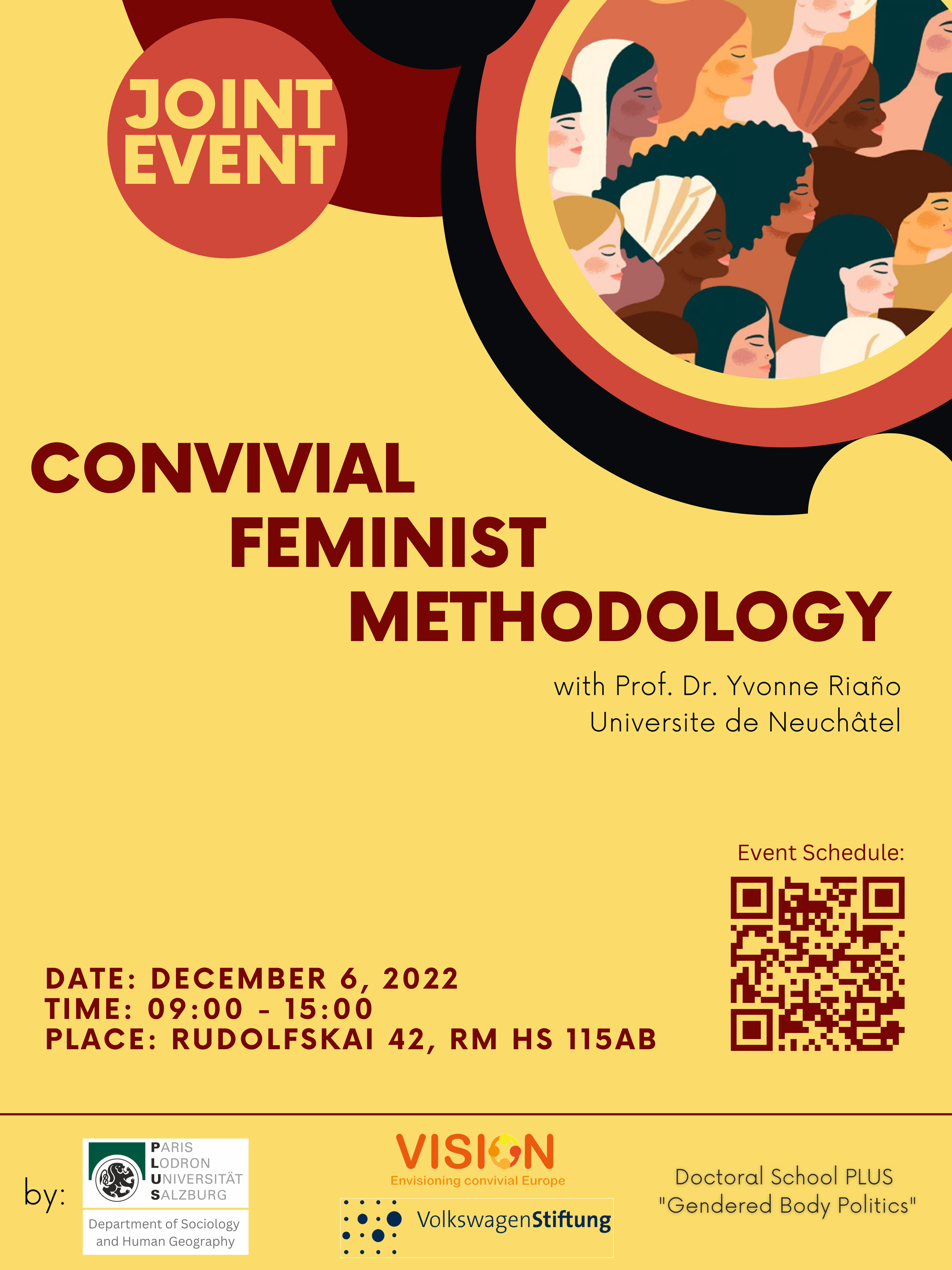“Convivial feminist methodology”
with Prof. Dr. Yvonne Riaño, Universite de Neuchâtel
Dec. 6, 9-15:00
Rudolfskai 42, Rm HS 115AB
Joint event by the Doctoral School PLUS „Gendered Body Politics” (Chair: Prof Zoe Lefkofridi), VW Project „VISION: Envisioning Convivial Europe“ (Salzburg Team PI: Prof. Kyoko Shinozaki)
and the Department of Sociology and Human Geography
Schedule
9:00-10:30 Public lecture Prof. Dr. Yvonne Riaño
“Working with or about a population group? Perspectives on participatory approaches using the example of the Minga methodology”
10:30-10:50 Coffee break
10:50-12:20 Public film screening and discussion “Weaving threads across the border”
Podium: Iepke Rijcken & tbc.
12:20-13:15 Lunch break, Mensa
13:15-14:45 Doctoral research workshop
“Moving towards reciprocity in social science research: Challenges and Possibilities”(doctoral students and faculty members)
LECTURE

This talk addresses the question of how researchers position themselves concerning their study populations. First, theories from feminist and postcolonial social sciences will be introduced that challenge traditional approaches to scientific knowledge discovery. These approaches question the relationship of power inequality that can exist between “objects of study” and researchers when the latter have absolute control over the questions to be asked, the methods to be used, and the interpretation and dissemination of the results. Feminist and postcolonial approaches call us to “democratise” research practices in the social sciences. Subsequently, the Minga methodology is presented, which was developed in 2014 by Yvonne Riaño in the context of a research project with migrant women in Switzerland and further developed in the context of other research projects. This methodology attempts to meet the challenge of feminist and postcolonial approaches by proposing a participatory process that aims, on the one hand, to generate “spaces of mutual learning” and, on the other hand, to produce social science knowledge in collaboration with “experts of everyday life”. The themes of scientific validity, positionality and reciprocity are placed at the centre of this participatory research practice.


